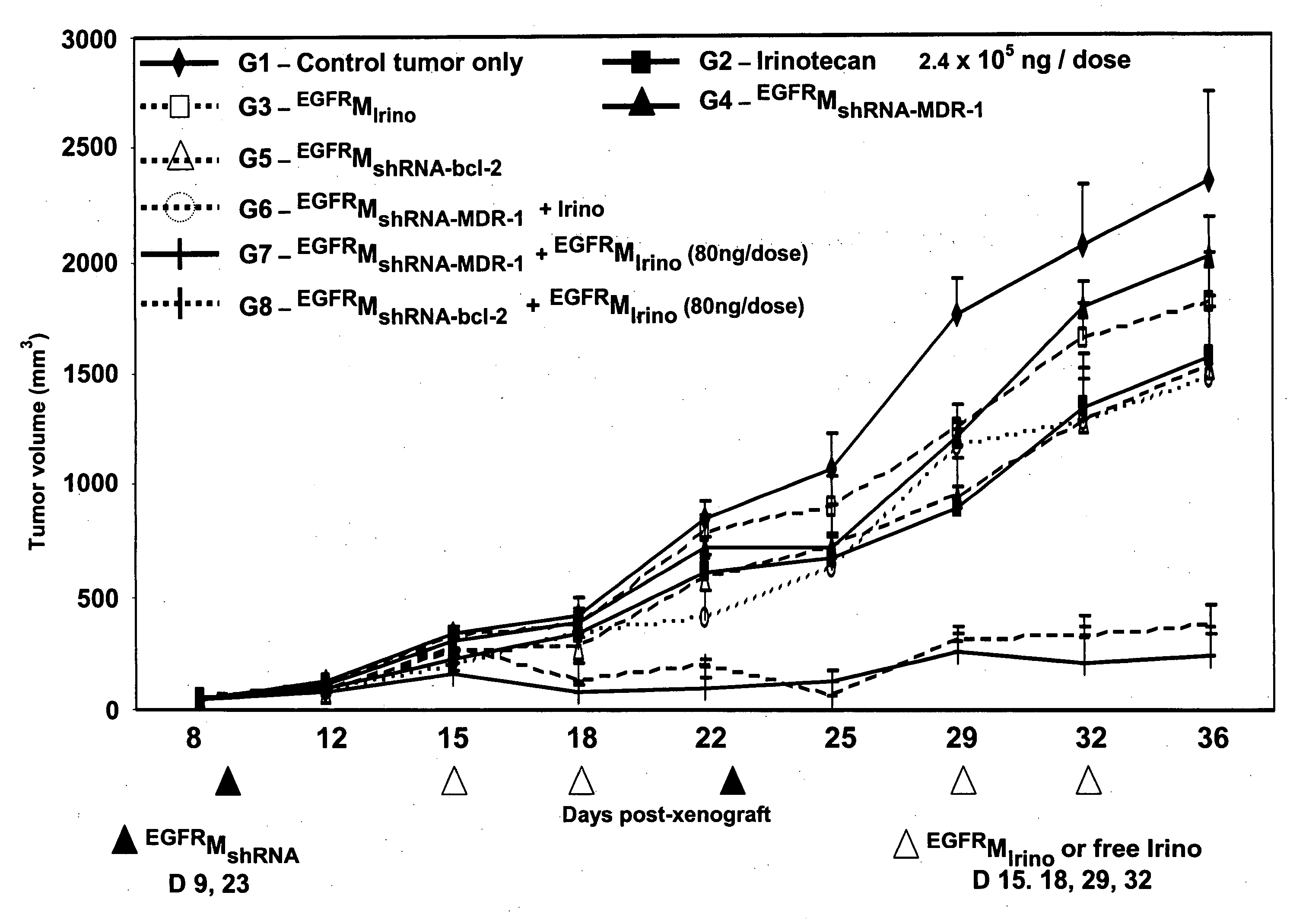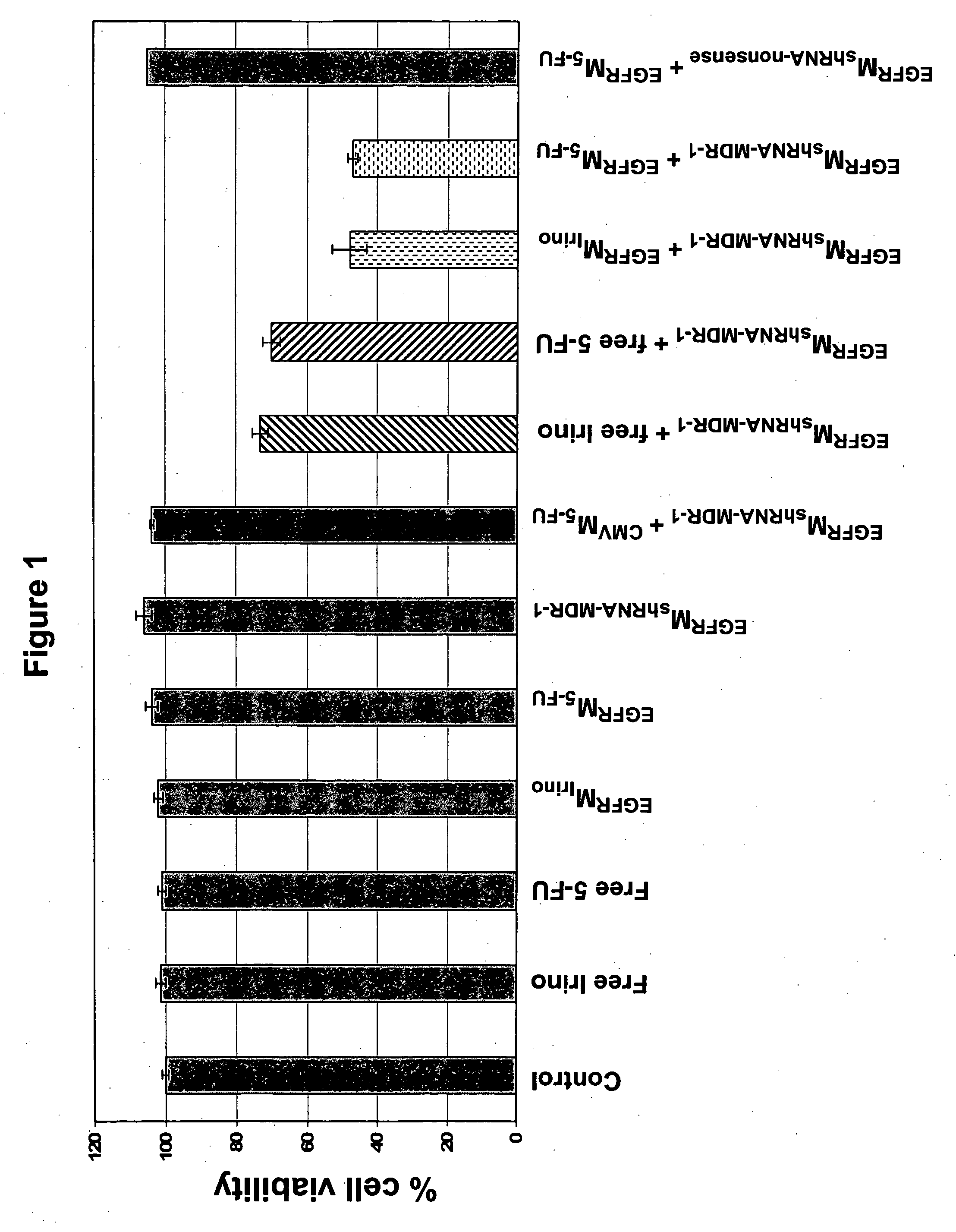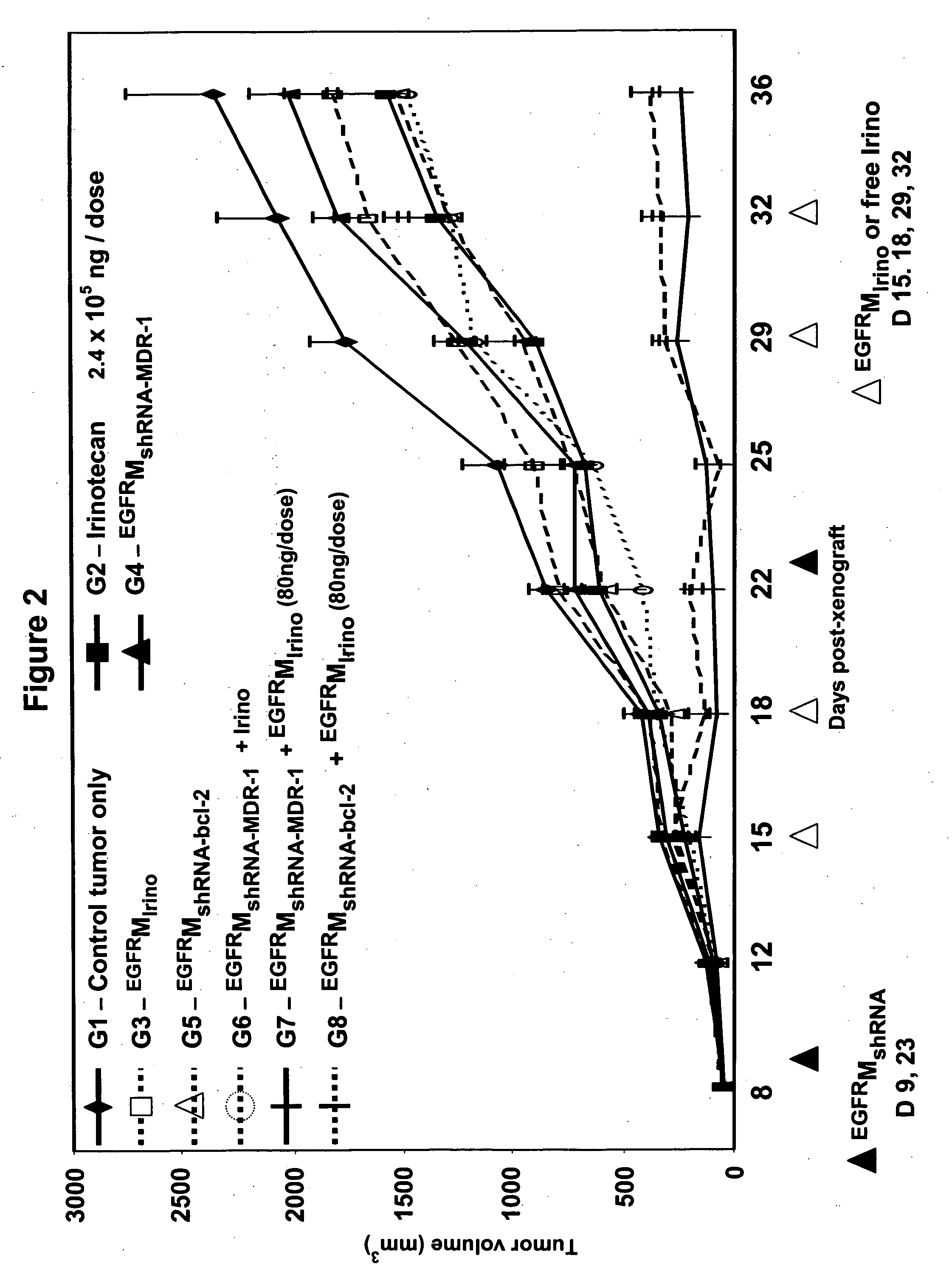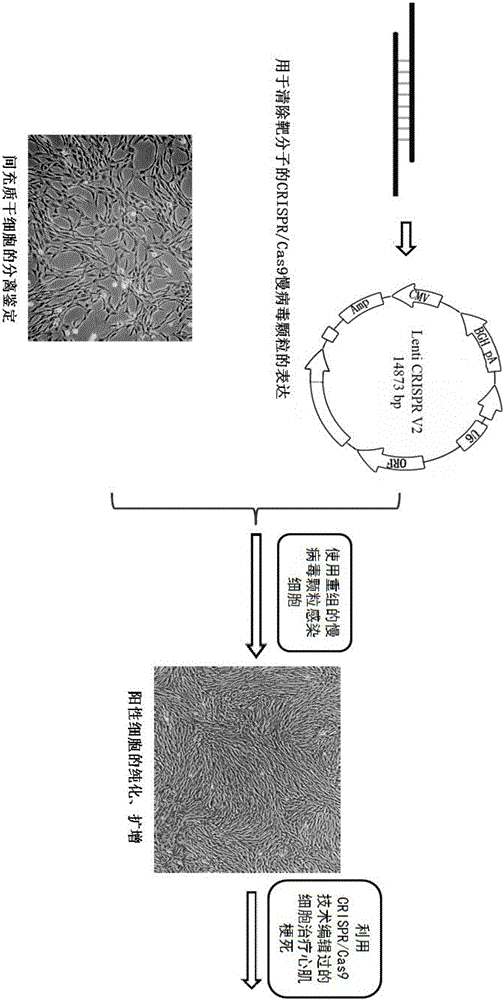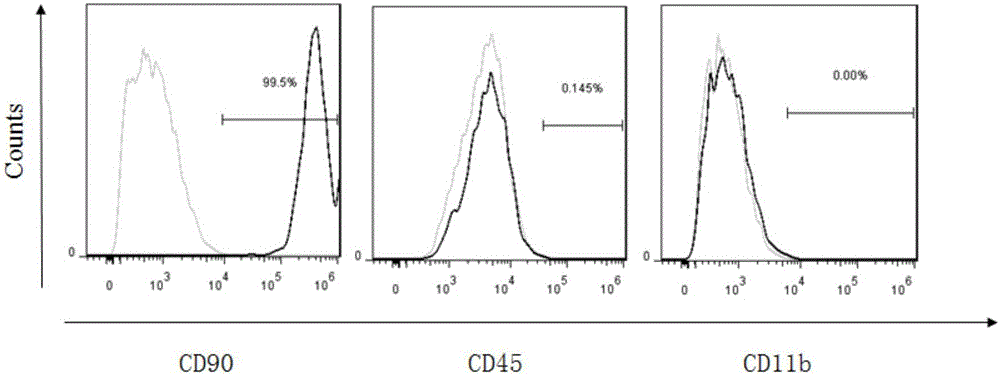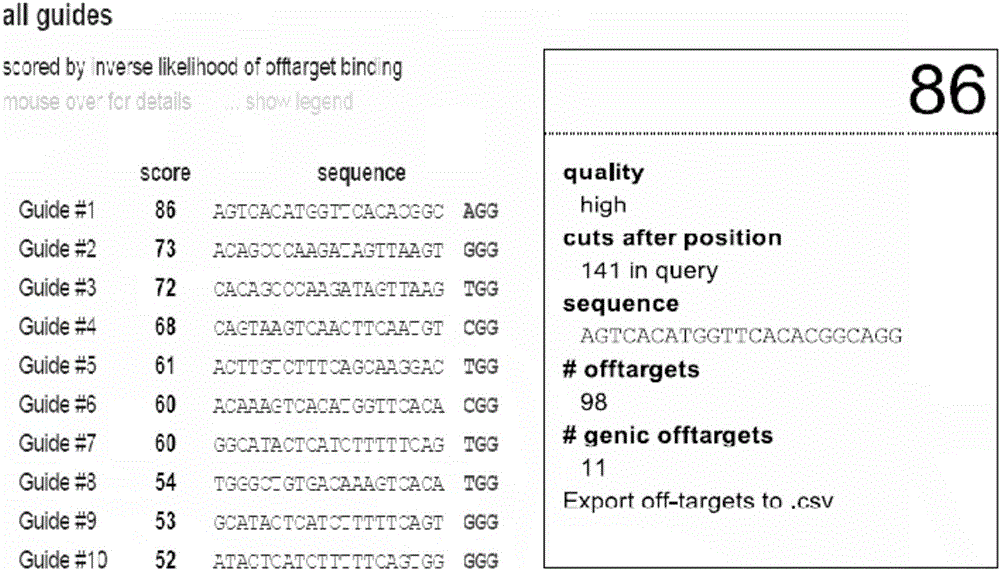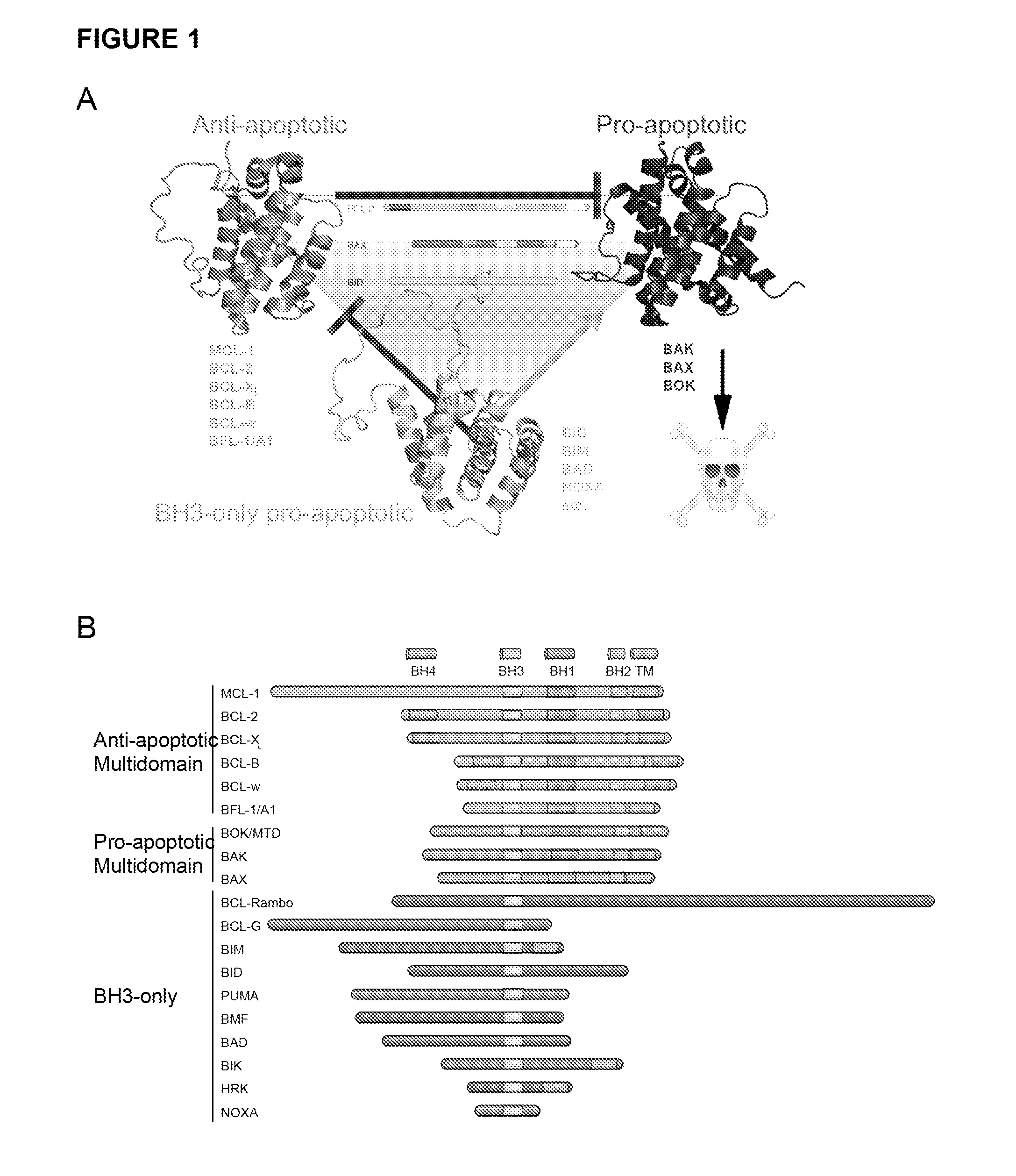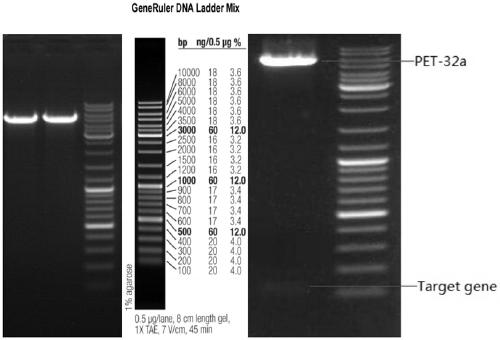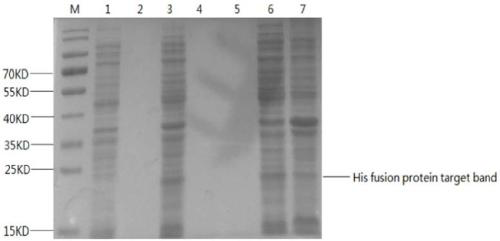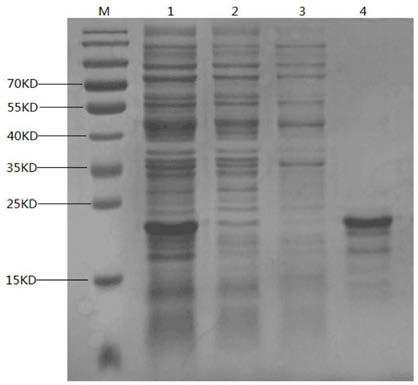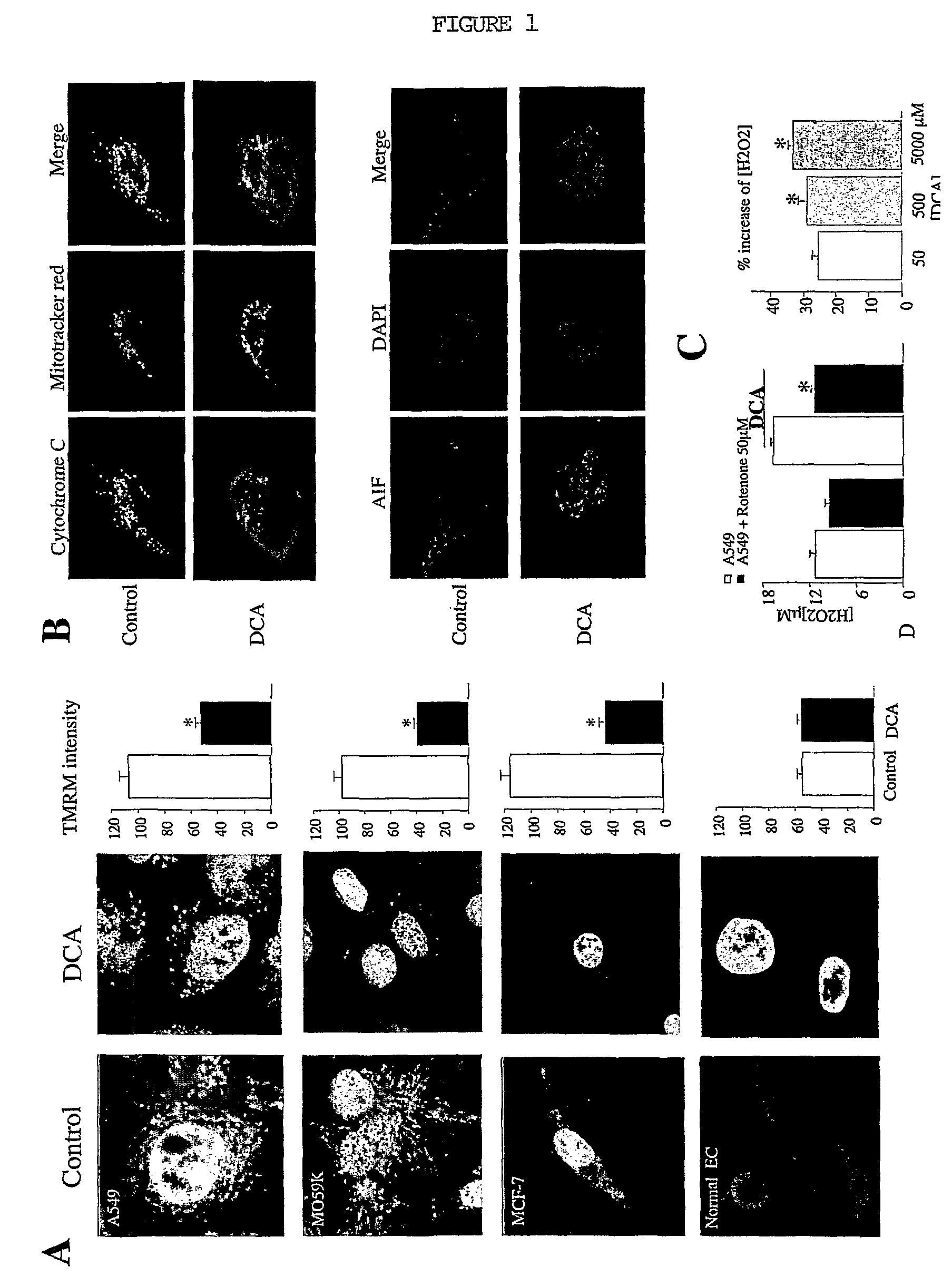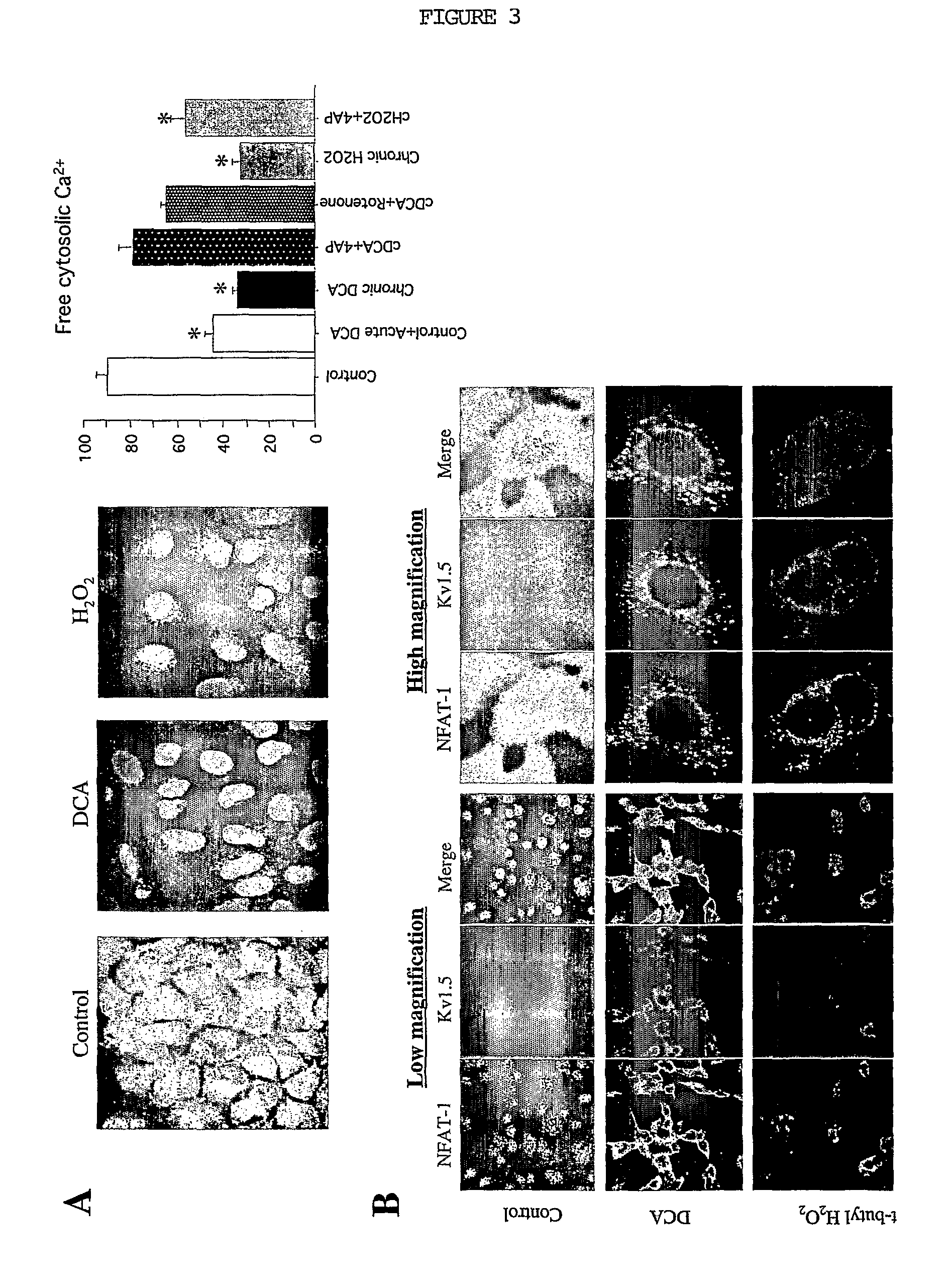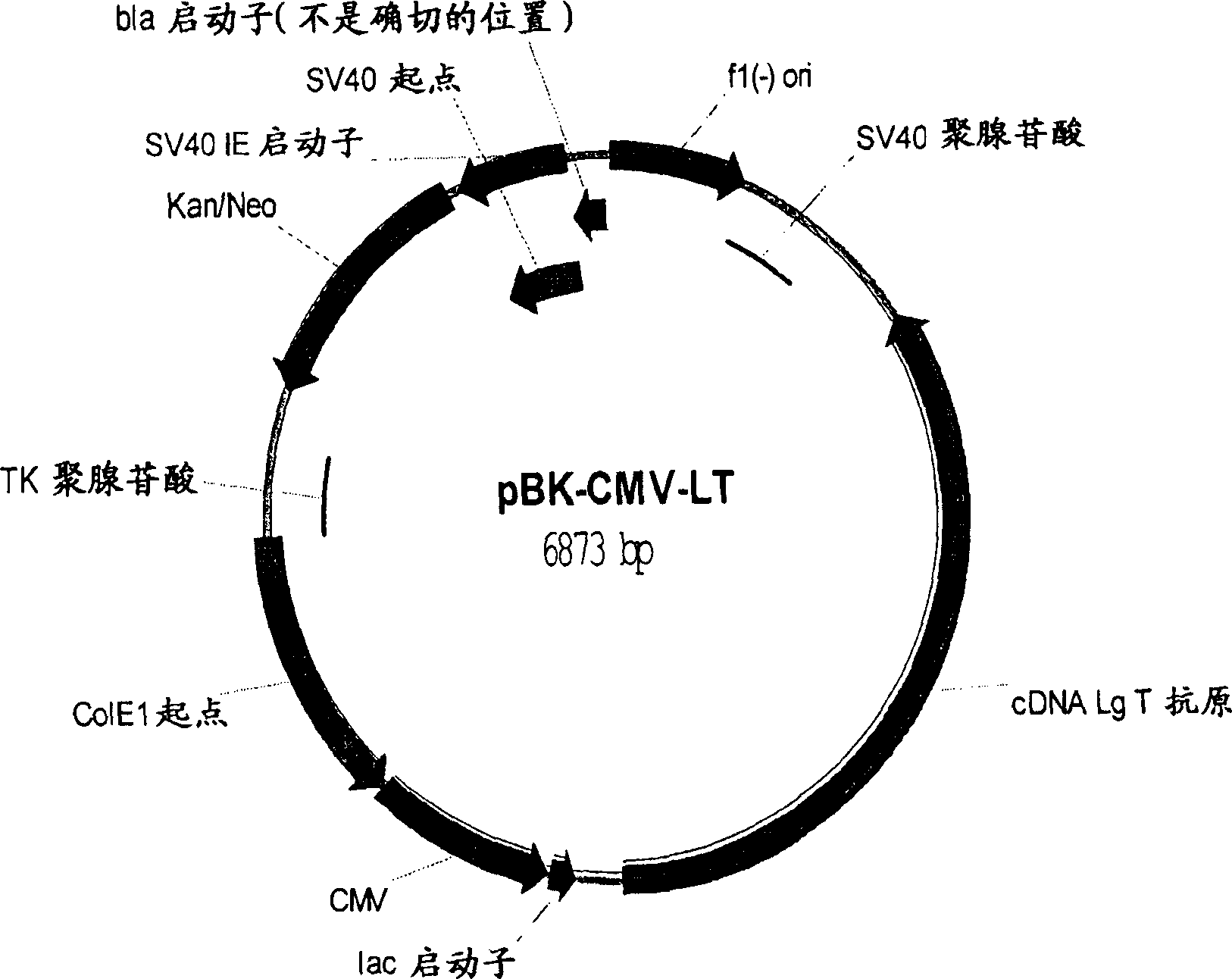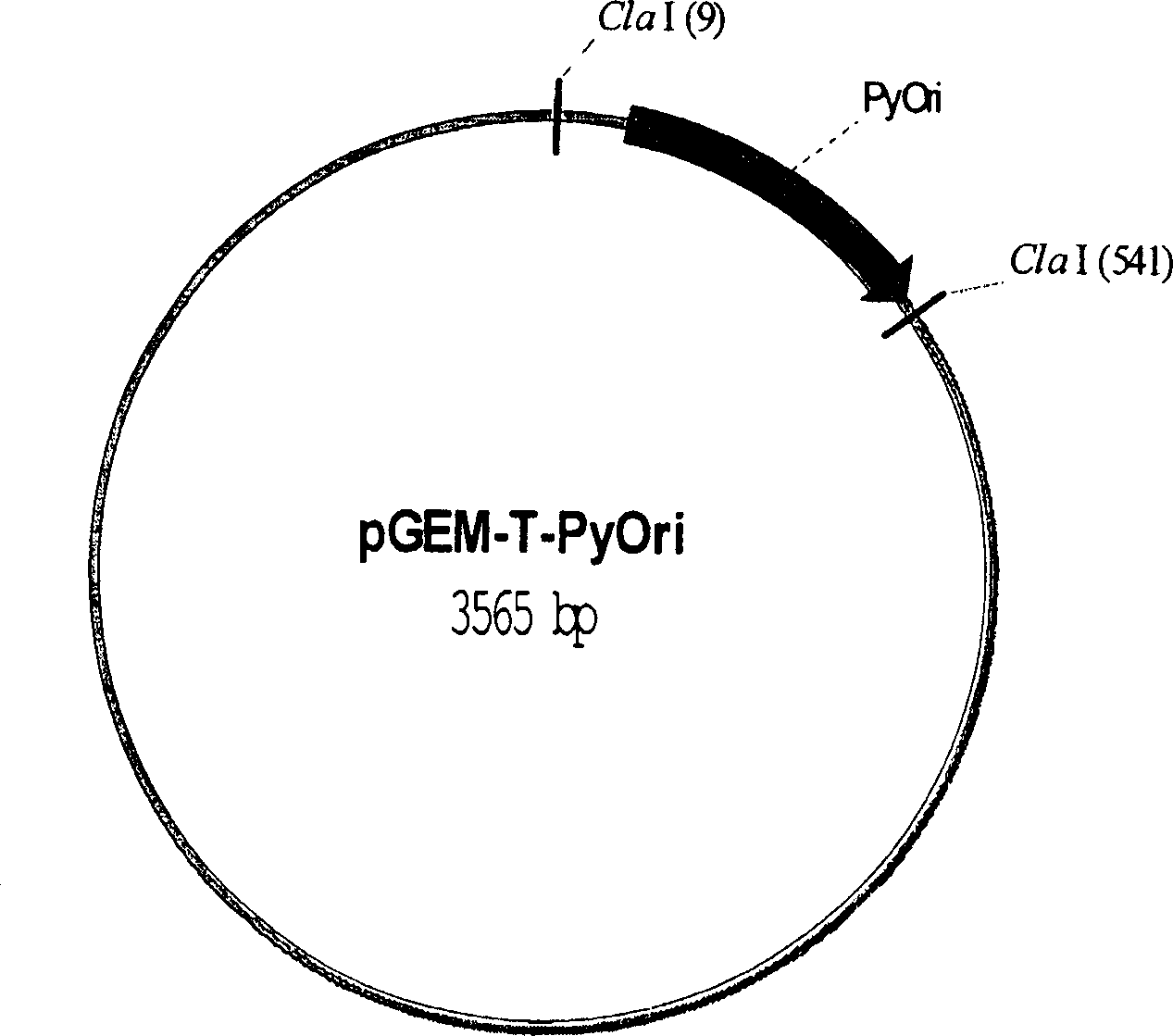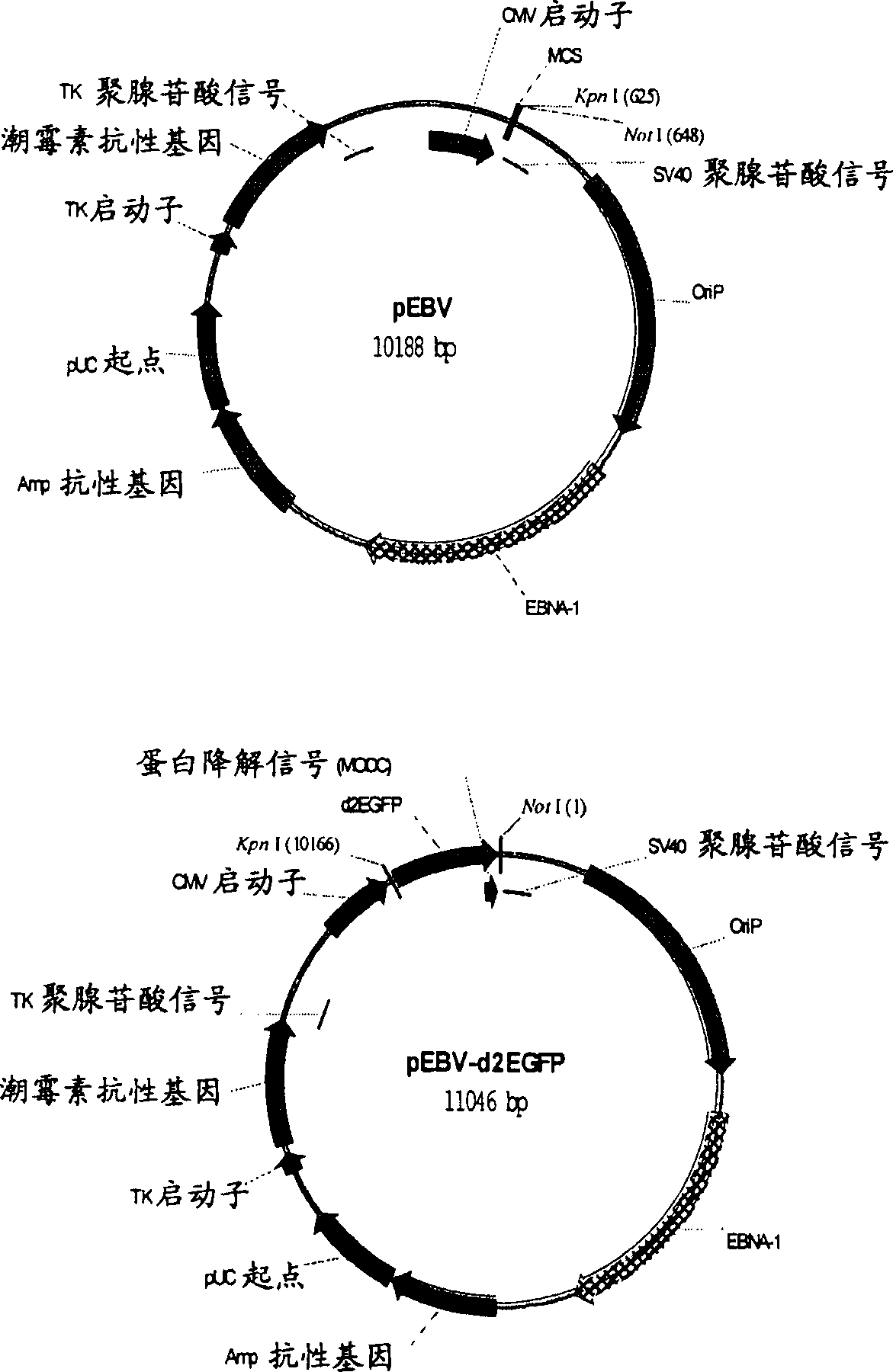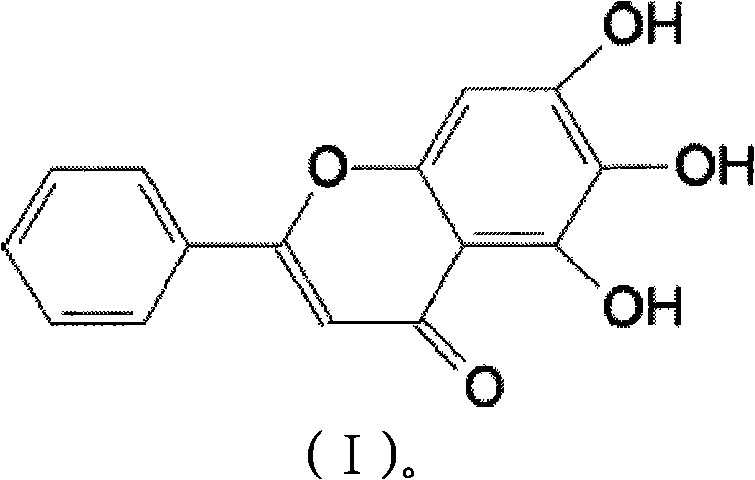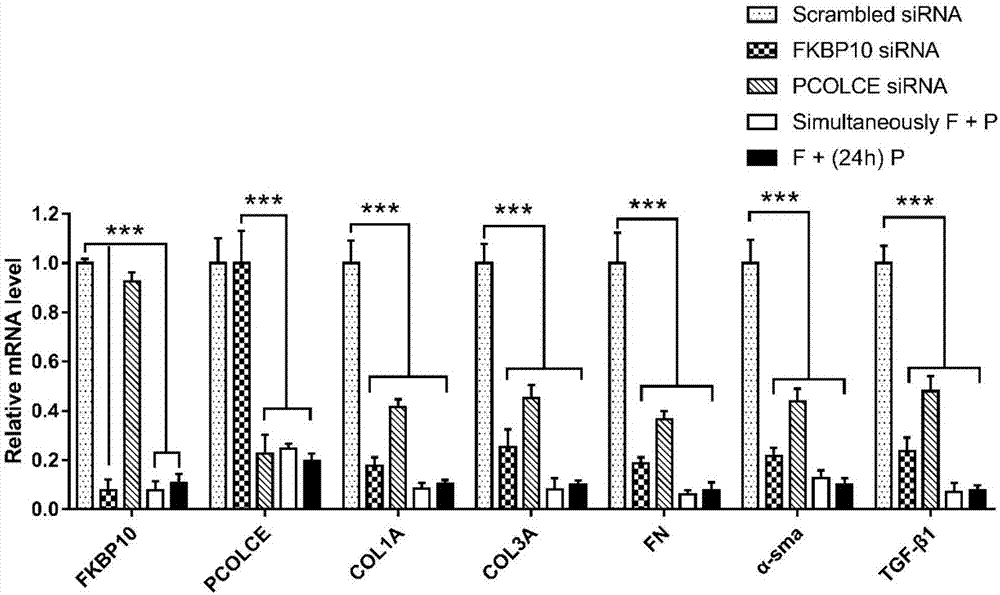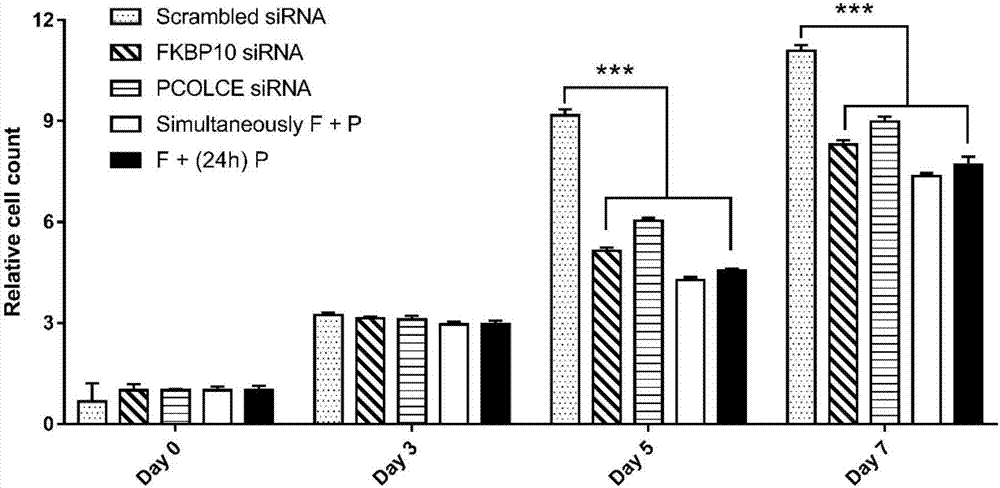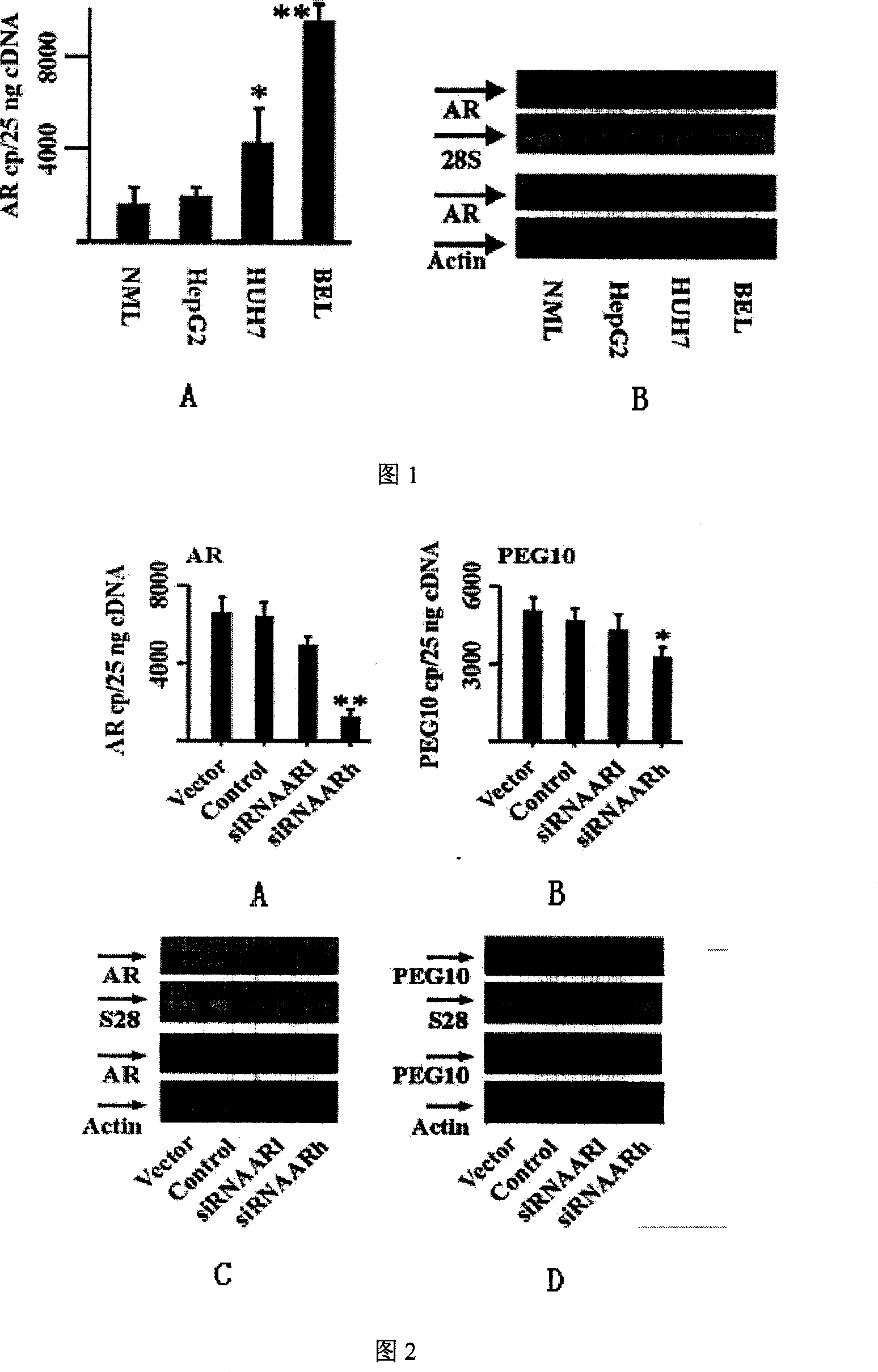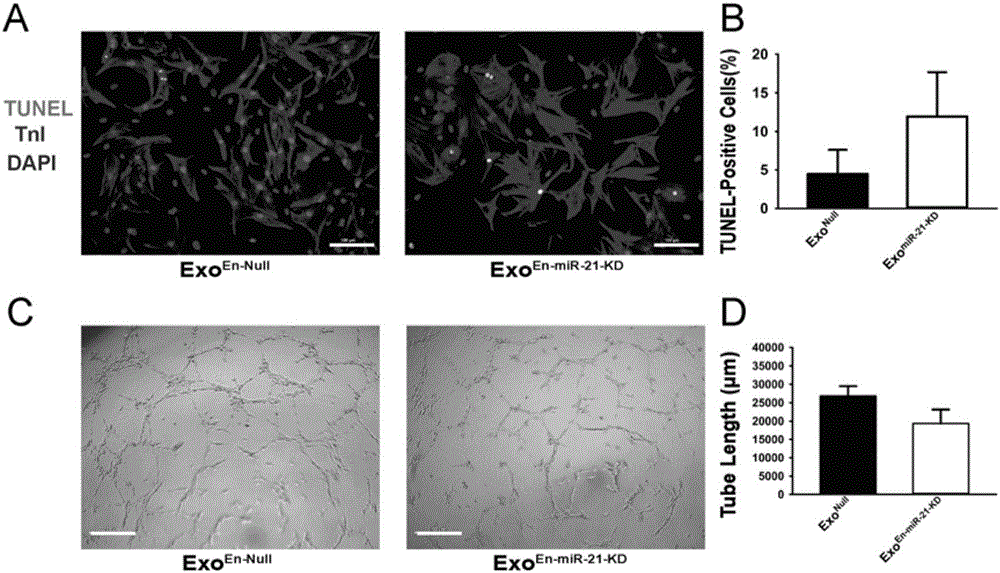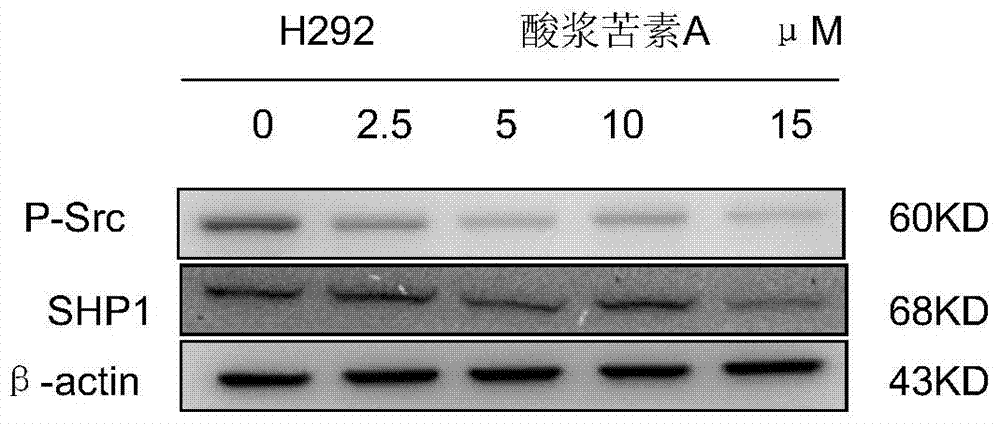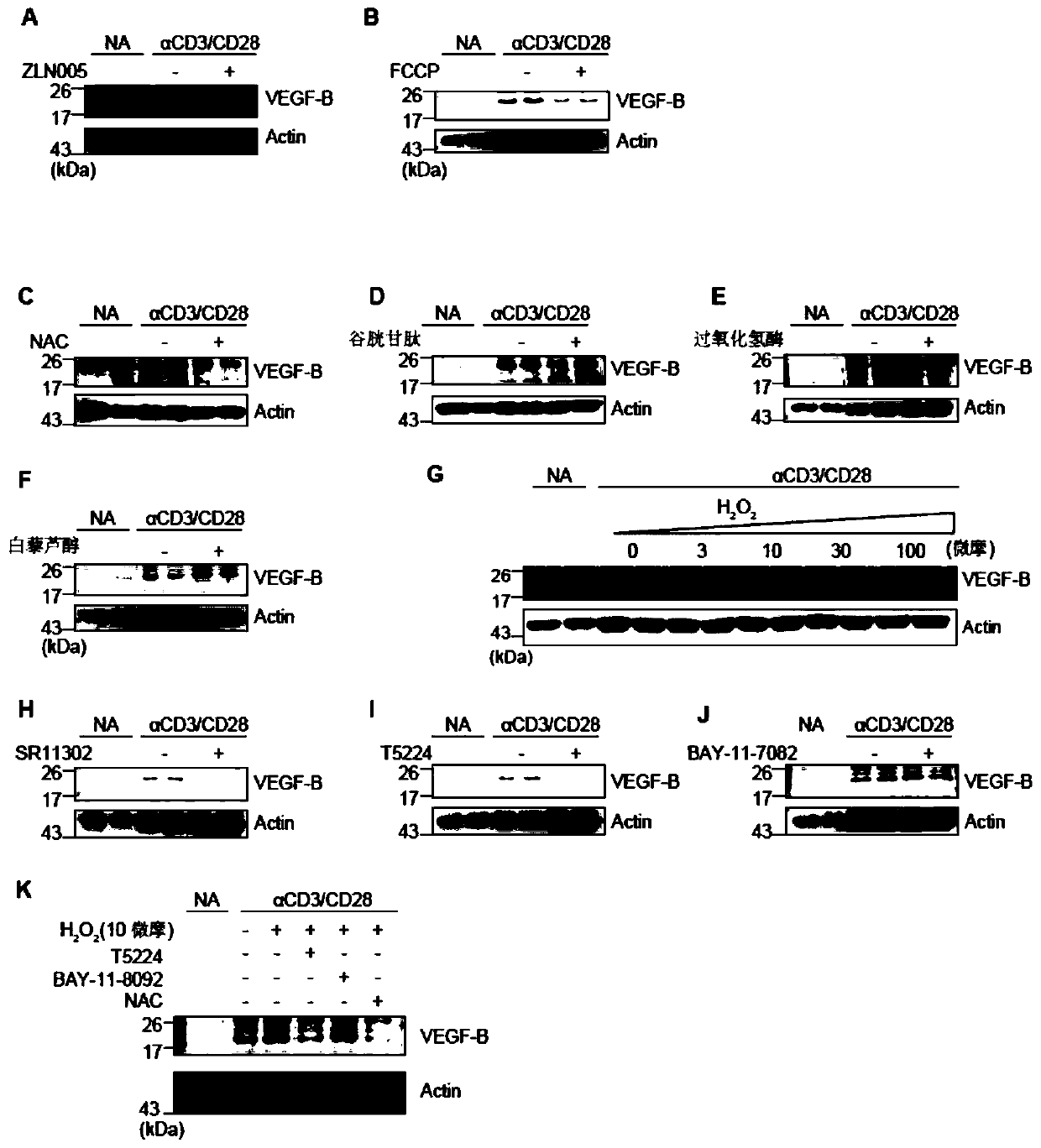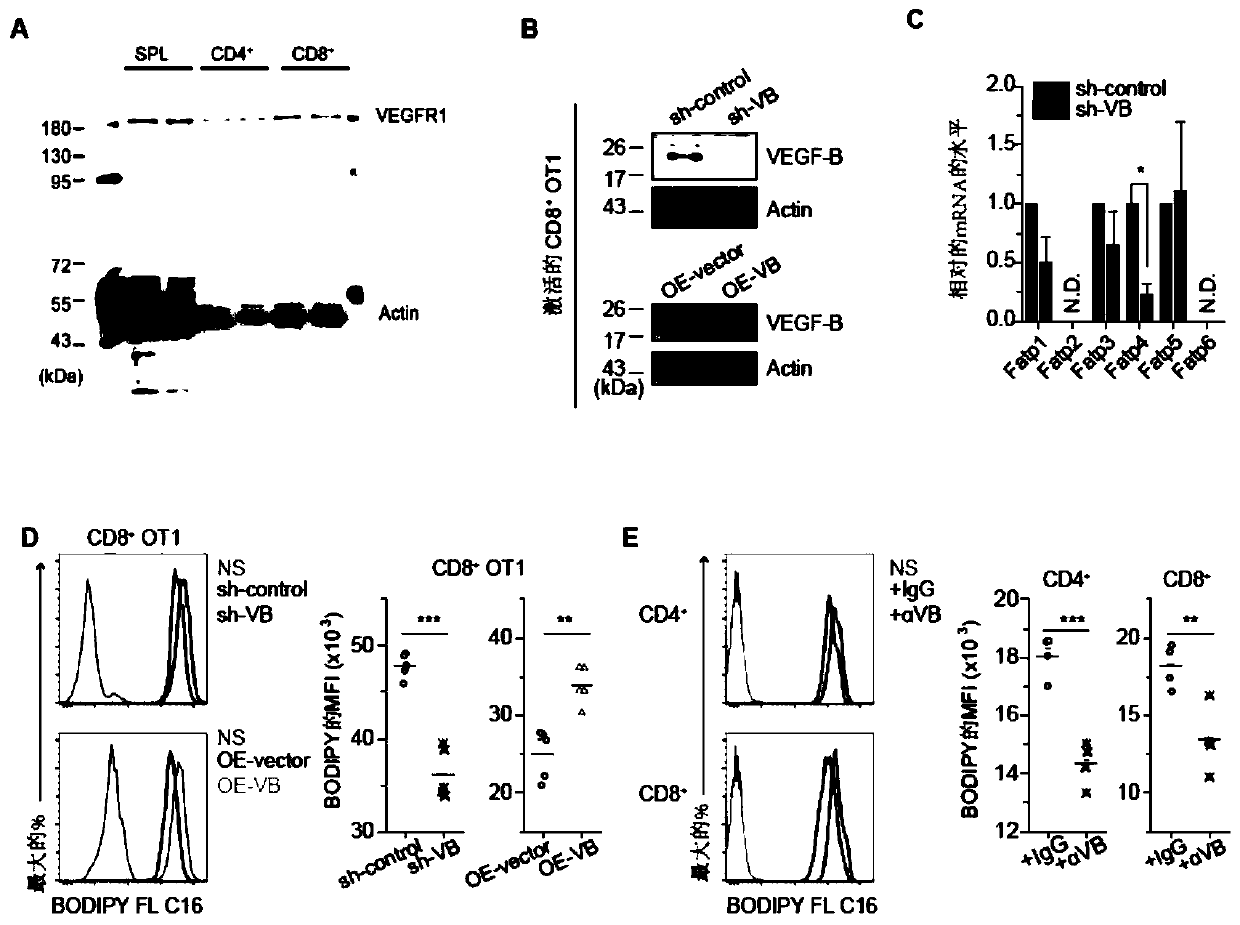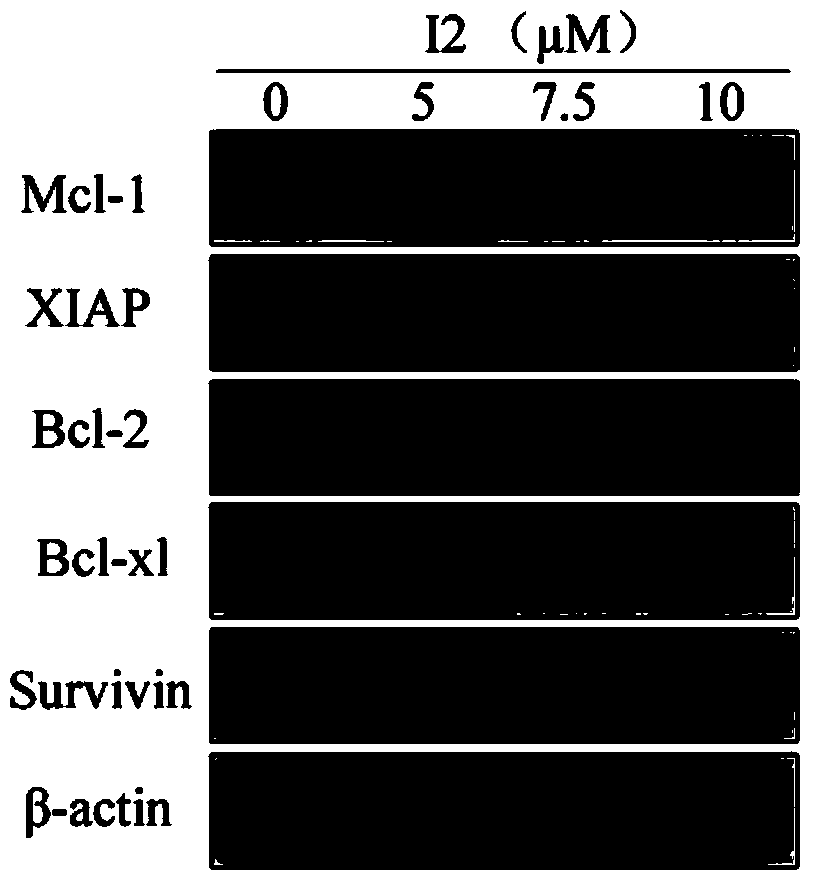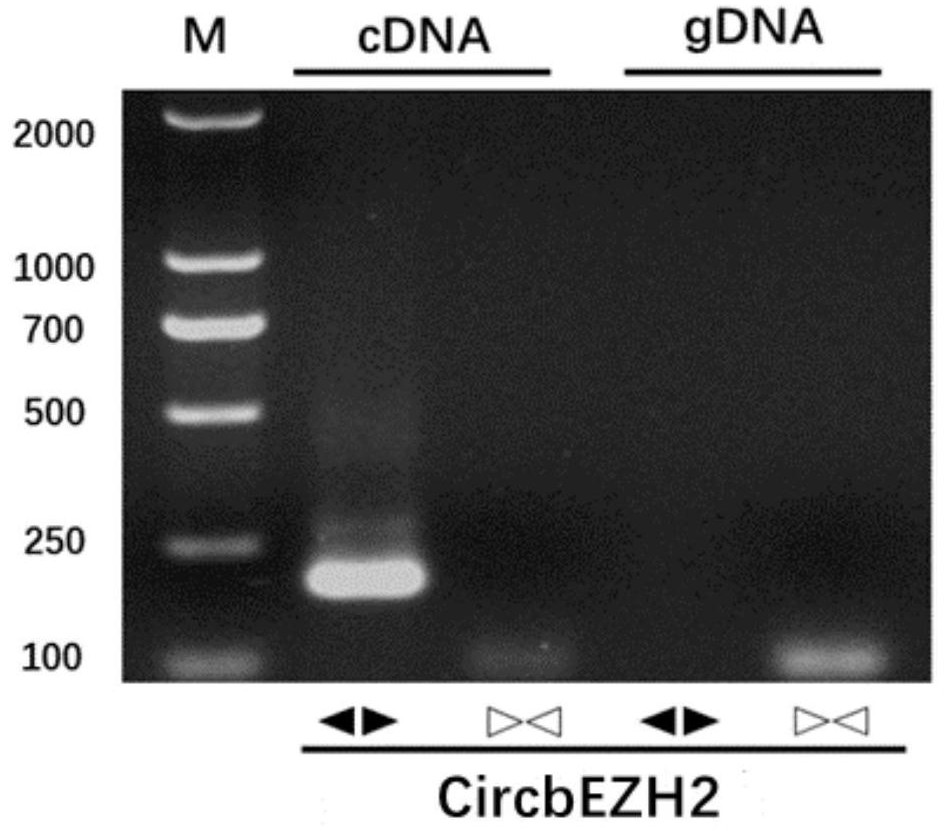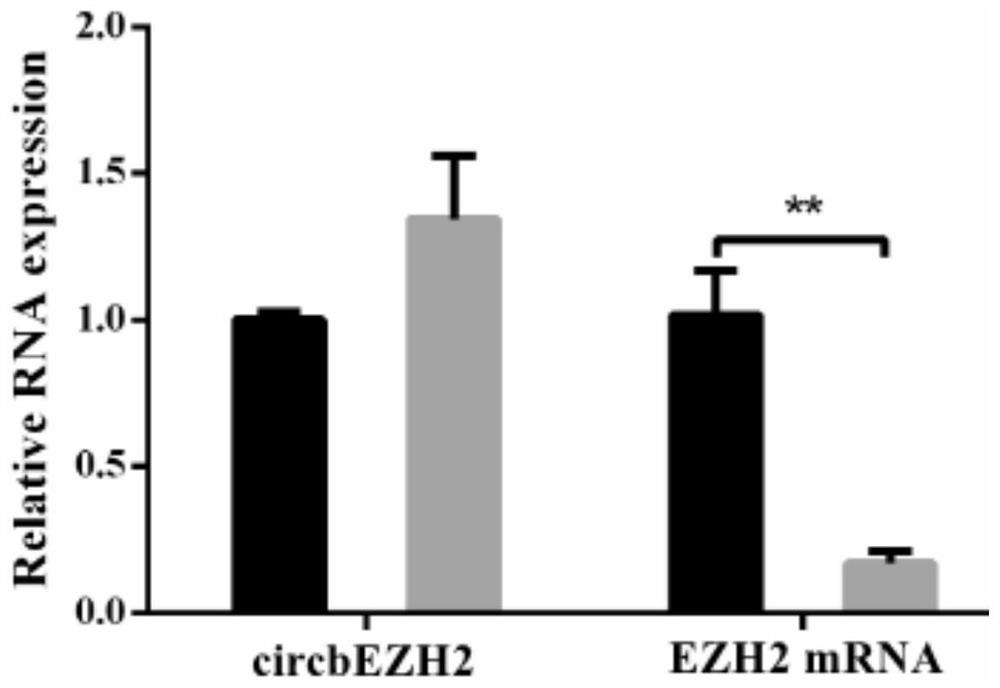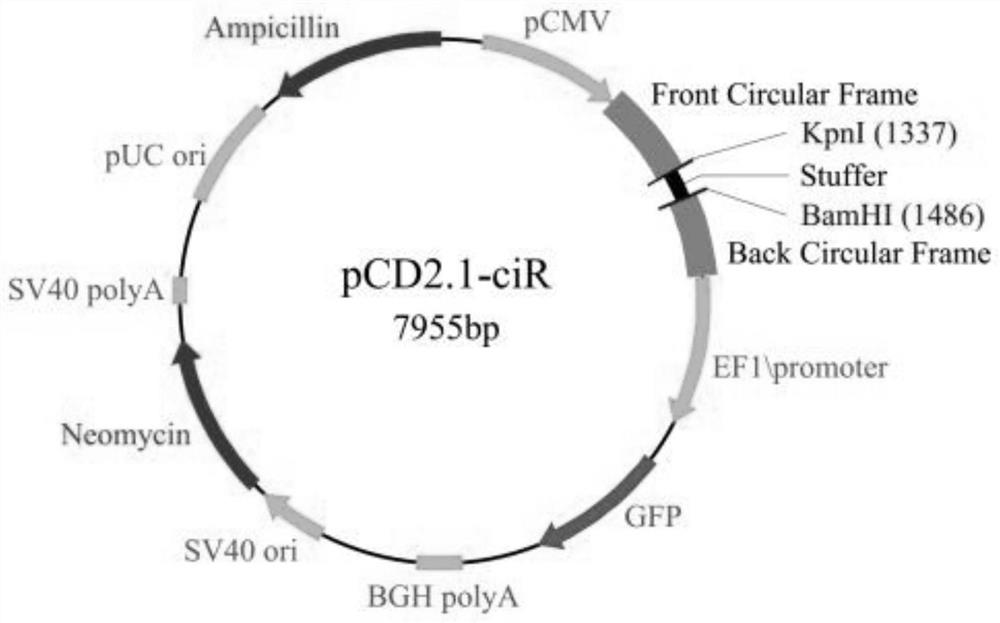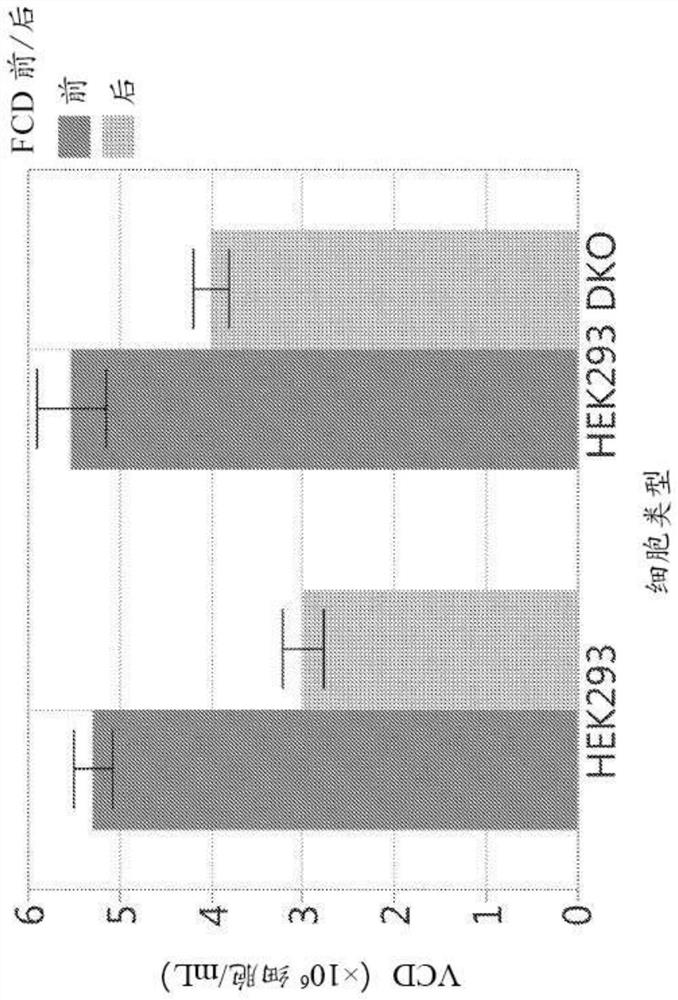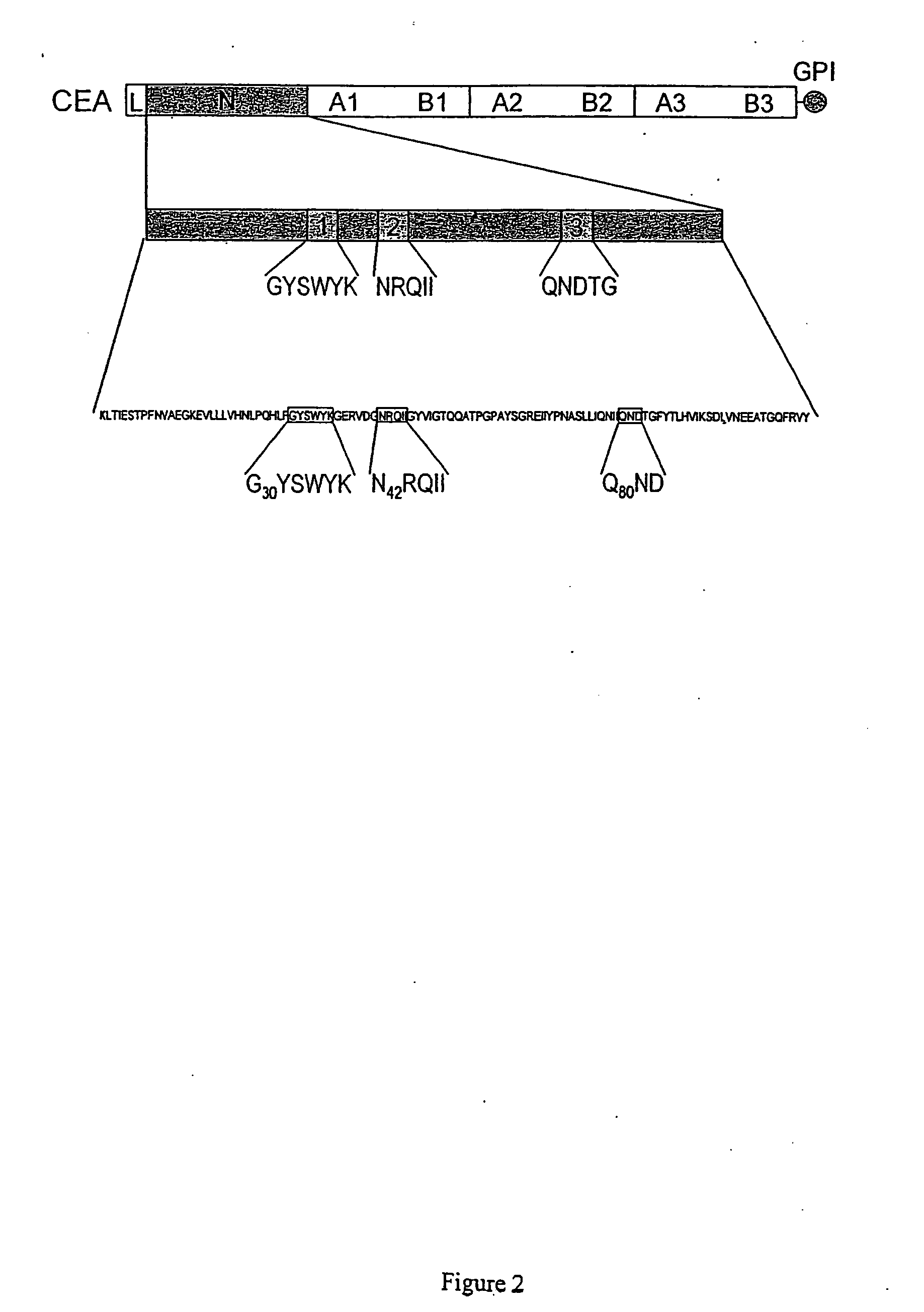Patents
Literature
Hiro is an intelligent assistant for R&D personnel, combined with Patent DNA, to facilitate innovative research.
41 results about "Apoptosis resistance" patented technology
Efficacy Topic
Property
Owner
Technical Advancement
Application Domain
Technology Topic
Technology Field Word
Patent Country/Region
Patent Type
Patent Status
Application Year
Inventor
Delivering functional nucleic acids to mammalian cells via bacterially-derived, intact minicells
ActiveUS20070298056A1Eliminate side effectsPowder deliveryOrganic active ingredientsEukaryotic plasmidsDrug resistance
Intact bacterially derived minicells containing functional nucleic acids or plasmids encoding functional nucleic acids can reduce, in targeted mammalian cells, drug resistance, apoptosis resistance, and neoplasticity, respectively. Methodology that employs minicells to deliver functional nucleic acids, targeting the transcripts of proteins that contribute to drug resistance or apoptosis resistance, inter alia, can be combined with chemotherapy to increase the effectiveness of the chemotherapy.
Owner:ENGENEIC MOLECULAR DELIVERY PTY LTD
Preparation method of allogenic mesenchymal stem cells by CRISPR (clustered regularly interspaced short palindromic repeats) technique editing and IGF (insulin-like growth factor) optimization and application of allogenic mesenchymal stem cells in treating myocardial infarction
ActiveCN105985985AImprove anti-apoptotic abilityPromote homingUnknown materialsFermentationAntigenInflammatory factors
The invention belongs to the field of allogenic mesenchymal stem cells, and particularly relates to a preparation method of allogenic mesenchymal stem cells by CRISPR (clustered regularly interspaced short palindromic repeats) technique editing and IGF (insulin-like growth factor) optimization and application of the allogenic mesenchymal stem cells in treating myocardial infarction. The preparation method comprises the following steps: carrying out separation by density gradient centrifugation to obtain allogenic single karyocytes, and carrying out adherent culture to obtain mesenchymal stem cells; designing a mesenchymal stem cell surface antigen B2M-gRNA and an inflammatory factor TNF-alpha-gRNA; establishing recombinant slow virus particles, and transfecting the mesenchymal stem cells; optimizing the mesenchymal stem cells by using IGF-1; and preparing drugs for treating myocardial infarctions by using the modified and optimized mesenchymal stem cells. The CRISPR / Cas9 technique is utilized to remove the antigens capable of causing immunological rejection and the inflammatory factors capable of causing inflammatory reaction on the mesenchymal stem cell surface, and the IGF-1 is utilized to enhance the apoptosis resistance of the mesenchymal stem cells and promote the homing of the mesenchymal stem cells, thereby providing a new technical scheme for preparing drugs for treating cardiovascular diseases in clinic. The prepared allogenic mesenchymal stem cells can not cause immunological rejection after cell transplantation.
Owner:SUZHOU UNIV
Methods and compositions for specific modulation of MCL-1
ActiveUS9079970B2Regulating MCL-1 activityApoptosis is enhancedAntibacterial agentsOrganic active ingredientsDiseasePharmacometrics
A series of stapled BCL-2 family peptide helices were identified as able to target the survival protein MCL-I with high affinity and a subset with unprecedented selectivity. Agents and methods for selective pharmacologic neutralization of MCL-I are provided for drug discovery and therapeutic uses, including use in overcoming the apoptotic resistance of cancer and other diseases associated with impaired cell death.
Owner:DANA FARBER CANCER INST INC
Titanium dental implant material and preparing method and application of titanium dental implant material
InactiveCN105126165AGood biocompatibilityStrong proliferative activityProsthesisBiocompatibility TestingAntimicrobial peptides
The invention discloses a titanium dental implant material and a preparing method and application of the titanium dental implant material. The titanium dental implant material prepared through the preparing method of the titanium dental implant material comprises a base body, a cationic polymer layer, an anion polysaccharide layer-chlorination chitosan-polypeptide A conjugate composite layer and an anion polysaccharide layer-antimicrobial peptide layer composite layer. The titanium dental implant material has good biocompatibility, bacterium resistance, apoptosis resistance and angiogenesis promoting activity, can support adhesion, survival, proliferation and differentiation of various cells, promotes survival, proliferation and migration of vascular endothelial cells, forms a lumen structure of a capillary tube sample and meanwhile inhibits adhesion and survival of periodontal common pathogenic bacteria. The titanium dental implant material has durable and efficient sterilizing and infection resisting capabilities, healing of peripheral bone wounds of the implant can be accelerated, chemical bonding of an implant-bone interface can be achieved, the success rate of oral implantology is increased, the treatment time is shortened, in addition, the preparing method is simple, and a good application prospect is achieved in the oral implantology field.
Owner:AFFILIATED HOSPITAL CHINA ACADEMY OF MILITARY MEDICAL SCI
Applications of tetramethylpyrazine derivative tetramethylpyrazine nitrone to prevention and treatment of brain injury diseases
ActiveCN105963298AConvenient treatmentAvoid damageOrganic active ingredientsNervous disorderSubarachnoid spaceInjury brain
The invention belongs to the field of medicament technology, and especially relates to applications of a tetramethylpyrazine derivative tetramethylpyrazine nitrone to medicament preparation as well as prevention and treatment of brain injury diseases. Experiments prove that tetramethylpyrazine nitrone can improve traumatic brain injury and brain injury after subarachnoid hemorrhage; the improvements concretely comprise the following aspects: improvement of behaviors of model rats with traumatic brain injury and subarachnoid hemorrhage, reduction of cerebral infarction areas due to traumatic brain injury, improvement of vasospasm state after subarachnoid hemorrhage, and protection of brain tissues. Mechanisms of action of tetramethylpyrazine nitrone relate to inhibition of oxidative stress injuries, inhibition of inflammatory reactions, and apoptosis resistance. Tetramethylpyrazine nitrone can be used as a medicine for preventing and treating brain injury diseases, especially traumatic brain injury and subarachnoid hemorrhage, and can be prepared into various dosage forms with medicinal carriers.
Owner:GUANGZHOU MAGPIE PHARMA
Genetic recombinant collagen-like peptide MJLGG-34 as well as preparation method and application thereof
ActiveCN109593127ASmall molecular weightPromote absorptionCosmetic preparationsConnective tissue peptidesBiotechnologySide effect
Owner:JINAN UNIVERSITY
Method of treating cancer using dichloroacetate
The invention relates to the use of dichloroacetate and chemical equivalents thereof for the treatment of cancer by inducing apoptosis or reversing apoptosis-resistance in a cell Preferably, the dosage is 10-100 mg / kg Preferably, sodium dichloroacetate is used. The dichloroacetate may optionally be given in combination with a pro-apoptotic agent and / or a chemotherapeutic agent Preferably, the cancers treated are non-small cell lung cancer, glioblastoma and breast carcinoma.
Owner:QUEENS UNIV OF KINGSTON
Preparation method and application of glycosyl-modified polyphenol compound
ActiveCN103848725AGood water solubilityHigh free radical scavenging rateSugar derivativesOrganic compound preparationSolubilityWater soluble
The invention discloses a glycosyl-modified polyphenol compound and a preparation method as well as an application thereof. The glycosyl-modified polyphenol compound has the following structure shown in the specification. The glycosyl-modified polyphenol compound is good in water solubility and has the high free radical scavenging rate and the good cell oxidation apoptosis resistance, thereby being wide in application prospect. The glycosyl-modified polyphenol compound can be applied to the development of anti-oxidation medicines. The glycosyl-modified polyphenol compound is simple in preparation method and easy to operate and avoids the application of a catalyst so as to realize environmental friendliness.
Owner:天津海润家和创新医药研究有限责任公司
Recombinant TAT-XIAP fusion protein
The invention belongs to the technical field of gene engineering, and particularly relates to a fusion protein formed by fusing a protein transduction domain (PTD) coded by TAT (trans-activator of transcription) genes of HIV (human immunodeficiency viruses) and an X-linked inhibitor of apoptosis protein (XIAP) nucleotide sequence. The amino acid sequence of the fusion protein is expressed as SEQ ID No: 1. Compared with the prior art, the original XIAP genes with nucleotide sequence expressed as SEQ ID No: 3 are optimized by using escherichia coli preferred codons so that the original XIAP genes are efficiently expressed in escherichia coli, the defect that the XIAP cannot stride the blood brain barrier or enter the brain to play a role in apoptosis resistance is made up by using the transduction capability of the PTD coded by the TAT genes of the HIV so that the final expression product of the genes can enter the brain tissue cells to play a role in cell apoptosis resistance, and the fusion protein is used for therapy and research of central nervous system diseases.
Owner:GUILIN MEDICAL UNIVERSITY
Method of treating cancer using dichloroacetate
The invention relates to the use of dichloroacetate and chemical equivalents thereof for the treatment of cancer by inducing apoptosis or reversing apoptosis-resistance in a cell Preferably, the dosage is 10-100 mg / kg Preferably, sodium dichloroacetate is used. The dichloroacetate may optionally be given in combination with a pro-apoptotic agent and / or a chemotherapeutic agent Preferably, the cancers treated are non-small cell lung cancer, glioblastoma and breast carcinoma.
Owner:QUEENS UNIV OF KINGSTON
Application of purified motherwort extract in preparing nerve protection medicine for treating cerebral injury
InactiveCN101596232AReduced expression levelIncrease contentOrganic active ingredientsNervous disorderAntioxidantDNA oxidation
The invention belongs to the field of pharmacy and relates to a new application of a traditional Chinese medicine motherwort extract in pharmacy, in particular to the application of the purified motherwort extract in preparing nerve protection medicine for treating cerebral injury, especially the application of the purified motherwort extract in preparing brain protection medicine for treating artery obstruction in the brain. By an animal experiment of the purified motherwort extract, a result indicates that the brain stem volume is obviously reduced after the purified motherwort extract is applied, the obstacle grading of the nerve function is decreased by being compared with a contrast group, the total antioxidant concentration in plasma is increased, the DNA oxidation injury is reduced, the expression levels of apoptosis and apoptosis promoting protein are reduced, and the content of apoptosis resistance protein is also increased. The purified motherwort extract can be used for preparing the nerve protection medicine for treating the cerebral injury and can effectively treat cerebral apoplexy.
Owner:FUDAN UNIV
Rodent expression systems utilising polyoma virus and epstein barr virus sequences
The present invention relates to protein expression systems and in particular to rodent cell expression systems utilising Polyoma Virus and Epstein Barr Virus elements. The invention utilises the large T antigen and origin of replication of polyoma virus and the EBV nuclear antigen-1 (EBNA-1) and EBV origin of replication from EBV. The present invention provides a rodent cell line with enhanced protein production capabilities. The invention also relates to eukaryotic cloning and expression vectors and related methods, and in particular to DNA vectors capable of high level expression of a protein of interest. The invention allows for long-term episomal maintenance of expression vectors in mammalian cells. The invention also relates to a method for increasing resistance to apoptosis in a rodent cell comprising expression of a polyoma large T antigen.
Owner:艾塞特生物技术有限公司
Application of baicalein in preparing medicaments for preventing and treating Parkinson diseases
InactiveCN101856350ARelieve symptomsPromote reversalOrganic active ingredientsNervous disorderBaicaleinNervous system
The invention discloses application of baicalein (chemical name: 5,6,7-trihydroxyflavone) as shown in a general formula (I) in preparing medicaments for preventing and treating Parkinson diseases. The invention relates to the application of the baicalein capable of reducing the trembling frequencies and amplitudes of the Parkinson diseases and improving and treating the symptoms of the Parkinson diseases, in particular to the application of the baicalein capable of protecting dopaminergic neurons from damage so that the pathological changes and the development of the Parkinson diseases can be effectively prevented and treated; and the baicalein exerts the function of protecting the dopaminergic neurons through apoptosis resistance, inflammatory resistance and antioxidation and exerts the function of inhibiting Parkinson symptoms through the function on nervous systems.
Owner:INST OF MATERIA MEDICA AN INST OF THE CHINESE ACAD OF MEDICAL SCI
Medicament based on rosmarinic acid and application thereof in treating Parkinson's disease
InactiveCN101773488AReduced survival rateReduce generationOrganic active ingredientsNervous disorderSide effectMembrane potential
The invention relates to a medicament based on rosmarinic acid and application thereof in treating Parkinson's disease. According to the formula of the medicament, the medicament comprises rosmarinic acid and sodium citrate with the molar concentration thereof being 1:104 to 1:1011. The medicament achieving the effect of neuroprotection in MES23.5 dopaminergic cells can obviously relieve the reduction in the survival rate of the MES23.5 cells caused by the induction of neurotoxin, i.e., 6-hydroxydopamine (6-OHDA) or 1-methyl-4-phenylpyridine cations, obviously relieve the reduction in the mitochondrial membrane potential of the cells caused by the induction of neurotoxin, i.e., 1-methyl-4-phenylpyridine cations and the generation of ROS (reactive oxygen species) substances and obviously improve the morphologic changes of nuclei caused by the induction of neurotoxin, i.e., 6-hydroxydopamine (6-OHDA) or 1-methyl-4-phenylpyridine cations, thereby achieving the effects of neuropretection, oxidation resistance and apoptosis resistance. The medicament of the invention having low toxicity and side effect has significant application prospect and actual value for the development into a novel anti-Parkinsonism natural medicament.
Owner:QINGDAO UNIV
Composition for drug targets and application
ActiveCN107982536AInhibition formationProliferation inhibitionSpecial deliveryDermatological disorderDiseaseCell-Extracellular Matrix
The invention relates to composition for drug targets and an application. The composition comprises a carrier and a drug adopting FKBP10 and PCOLCE genes and / or protein encoded by the genes as drug targets. By means of intervention in FKBP10 and PCOLCE, formation of tissue fibrosis is inhibited, and biological behaviors such as skin fibroblast proliferation, differentiation, apoptosis resistance,secretion of a large quantity of extracellular matrixes and the like are inhibited, so that the effect of treating fibrosis related diseases is achieved.
Owner:SHANGHAI NINTH PEOPLES HOSPITAL AFFILIATED TO SHANGHAI JIAO TONG UNIV SCHOOL OF MEDICINE
Application of double-chain small disturbance RNA of PEG10 gene in preparing medicament for treating or preventing liver cancer
InactiveCN101152575AStrong specificityGenetic material ingredientsDigestive systemWilms' tumorHuman telomerase
The invention discloses the application of a double-chain small interference RNA (siRNA) with PEG10 gene in preparing medicine for curing or preventing liver cancer. Research has shown that male hormone in liver cancer cells can promote the expressive level of genetic imprinted gene 10 (PEG 10 gene), and the high-expression of the PEG 10 gene induced by the male hormone is capable of promoting the expression of the human telomerase reverse transcriptase gene (hTERT), which may participate in forming liver caner by prohibiting apoptosis. The discoveries have proven that the PEG 10 gene play an importance role in apoptosis resistance of the liver cancer cells; the double-chain small interference RNA (siRNA) with PEG10 gene can induce apoptosis of the liver cancer cells, prevent formation of liver cancer, effectively slower the growth speed of tumors and reduce the size of the cancer tissues, which mean the siRNA can be regarded as a medicine product for curing or preventing liver cancer.
Owner:WUHAN UNIV
Application of miR-21 in preparing EnMSCs (endometrium derived mesenchymal stem cells) paracrine effect regulator
InactiveCN106367437AInhibition of angiogenesisConfirmed regulationMicrobiological testing/measurementSkeletal/connective tissue cellsMesenchymal stem cellCardiac muscle
The invention relates to an application of miR-21 in preparing an EnMSCs (endometrium derived mesenchymal stem cells) paracrine effect regulator, and a culture method for regulating an EnMSCs paracrine effect. According to the application provided by the invention, it proves that with the down-regulated expression of the miR-21, an EnMSCs paracrine protective effect can be weakened. The invention provides the application of the miR-21 in preparing the EnMSCs paracrine effect regulator; and through miR-21-KD (miRNA-21 knockdown), the effects of an EnMSCs exosome on myocardium cell apoptosis resistance and angiogenesis of HUVECs (human umbilical vein endothelial cells) can be effectively inhibited, thus proving the effect of the miR-21 on regulating and controlling the EnMSCs.
Owner:ZHEJIANG UNIV
Tissue engineering skin for promoting wound healing and preparation method thereof
PendingCN112826980AStrong adhesionImprove sealingPharmaceutical delivery mechanismProsthesisApoptosis resistanceStem like cell
The invention relates to the field of tissue engineering skin, in particular to tissue engineering skin for promoting wound healing and a preparation method of the tissue engineering skin, and the tissue engineering skin comprises a photo-crosslinking scaffold for simulating a skin epidermal layer, a gel scaffold for simulating a skin corium layer and seed cells required by wound repair; the main components of the scaffold material for simulating the skin epidermal layer are glycidyl methacrylate modified polyvinyl alcohol and o-nitrobenzyl light trigger molecule modified hyaluronic acid; the gel scaffold for simulating the corium layer of the skin is selected from gelatin modified by methyl methacrylate; the seed cells are selected from adipose tissue-derived stem cells transfected by Slit2. The bionic skin is constructed by preparing the double-layer bionic skin tissue engineering scaffold and loading the Slit2 transfected adipose-derived mesenchymal stem cells, so that the stability and apoptosis resistance of blood vessels are favorably maintained, and the formation of the blood vessels and epidermis is accelerated, thereby promoting the healing of refractory wounds.
Owner:SHANGHAI YANGPU SHIDONG HOSPITAL
Application of physalin A in preparation of JAK2-STAT3 signal channel inhibitor and antitumor drug
ActiveCN103784435AInhibit apoptosisInhibition of apoptosis resistanceHeavy metal active ingredientsOrganic active ingredientsChemotherapeutic drugsCis-platinum
The invention discloses an application of physalin A in preparation of a JAK2-STAT3 signal channel inhibitor and an antitumor drug. The physalin A is a compound with a structure shown in a formula I. The JAK2-STAT3 signal channel inhibitor can inhibit various tumor cells. As the JAK2-STAT3 is abnormally activated to lead to uncontrollable growth of tumor and apoptosis resistance of tumor cells, tumor cell proliferation is further inhibited and tumor cell apoptosis is further induced. The physalin A can be applied to preparation of the antitumor drug. The physalin A is combined with the chemotherapeutic drug (cis-platinum) can remarkably inhibit tumor cell proliferation so as to realize the purpose of enhancing effect and reducing toxicity. Particularly, the physalin A and cis-platinum combined in use to prepare the antitumor drug troches can generate a very strong synergistic effect, and the antitumor drug troches prepared have very good antitumor activity.
Owner:浙江美新控股有限公司
Application of autocrine VEGFB to T cell metabolism and functions as well as tumor immunity treatment
ActiveCN110327458AIncrease intakePromote anti-apoptosisOrganic active ingredientsNervous disorderT lymphocyteT cell
The invention belongs to the field of biologic medicines, and particularly relates to an application of autocrine VEGF-B to T cell metabolism and functions as well as tumor immunity treatment. For thefirst time, the invention discloses that blood vessel endothelium growth factors B(VEGF-B) are metabolism adjusting and controlling factors selectively secreted by different subtypes of activated T cells. Through antibodies, or peptide activated T cells, and / or excitants which can promote biologic synthesis of mitochondria, or reagents for adjusting and controlling ROS / AP-1 signals pertinent to the mitochondria, the activated T cells can be induced by a ROS / AP-1 signal channel to secrete VEGF-B, so that fatty acid ingestion, apoptosis resistance, tumor resistance activity and the like of theT cells can be promoted. The metabolism of T lymphocytes is programmed through tumor microenvironment, and the autocrine VEGF-B has great application prospects in tumor immunity treatment.
Owner:SHANGHAI JIAOTONG UNIV SCHOOL OF MEDICINE
Application of DNA nanoribbon in apoptosis resistance and preparation method of DNA nanoribbon
ActiveCN108186666AInhibit apoptosisAchieving the purpose of apoptosisOrganic active ingredientsDrug compositionsDNA origamiA-DNA
The invention belongs to the technical field of biomedicine, and particularly relates to an application of a DNA nanoribbon in apoptosis resistance and a preparation method of the DNA nanoribbon. TheDNA nanoribbon synthesized by a DNA origami technology is applied to apoptosis resistance. Activity of cytochrome C peroxidase is inhibited by a DNA origami structure, and accordingly, the apoptosis resistance purpose is achieved, and the DNA nanoribbon is expected to provide important references in delivery systems for drugs for regulating the activity of cytochrome C enzyme as well as in targeted drug delivery.
Owner:NORTHWEST UNIV(CN)
Dithiocarbamic acid mixed-valence copper complex as well as preparation and application thereof
ActiveCN111548360AEfficient synthesisResistant to apoptosisCopper organic compoundsFluorescence/phosphorescencePancreas CancersCancer cell
The invention discloses a dithiocarbamic acid mixed-valence copper complex as well as preparation and application thereof; the chemical formula of the copper complex is [CuII2(L)2(Br)2CuI(Br)], wherein HL is 2-(bis(pyridin-2-yl)methylene)hydrazine methyl methyl dithiosulfate. The preparation method of the copper complex is simple, and the target product dithiocarbamic acid mixed-valence copper complex has obvious fluorescence in a green region of 450-650 nm of a visible spectrum, is used for cancer cell imaging based on fluorescence and is used for preparing a cancer cell imaging fluorescent probe. The target product also has good anti-cancer activity and cancer cell metastasis resistance activity. Particularly, the target product provided by the invention can induce cancer cells with apoptosis resistance, such as pancreatic cancer cells and ferroptosis (cell death in a non-apoptotic form), effectively overcomes the occurrence of drug resistance, and has quite good application value.
Owner:江苏思默飞医疗科技有限公司
Application of physagulin P in preparation of antitumor drug
ActiveCN103961369APrevent proliferationGrowth inhibitionHydroxy compound active ingredientsInorganic active ingredientsApoptosis resistanceAnti-Tumor Drugs
The invention discloses an application of physagulin P in preparation of antitumor drug. The physagulin P is a compound, the structure of which is shown as formula I in the specification; the invention firstly finds that the physagulin P can lower the expression level of tumor apoptosis resistance genes XIAP and Mcl-1 so as to further inhibit tumor cell proliferation and induce tumor cell apoptosis through inhibiting phosphorylation of STAT3 kinase 705 tyrosine (Tyr705); the physagulin P can obviously inhibit the growths of a variety of malignant tumor cells, such as stomach cancer, lung cancer, liver cancer, myeloma, breast cancer, and the like. The physagulin P shows excellent anti-tumor activity when being used as an anti-tumor activity containing inhibitor of a new specific STAT3 signaling pathway, especially in conjunction with resveratrol and arsenic trioxide. The formula I is as shown in the specification.
Owner:浙江美新控股有限公司
CircRNA marker related to apoptosis of dairy cow mammary epithelial cells and application thereof
InactiveCN112626236AAccurately detect whether a loop is formedAccurate detection of its expression levelMicrobiological testing/measurementNucleic acid vectorBiotechnologyAnimal science
The invention discloses a circRNA marker related to apoptosis of dairy cow mammary epithelial cells and application thereof. The circRNA marker is circbEZH2, and the sequence of the circbEZH2 is shown as SEQ ID NO: 1. Whether the circbEZH2 forms a ring or not and the effect of an overexpression vector in the process of detecting the apoptosis resistance of the dairy cow mammary cells are verified, the overexpression vector plasmid of the circbEZH2 is transfected into the dairy cow mammary epithelial cells, the overexpression circbEZH2 can inhibit apoptosis of the dairy cow mammary epithelial cells, a new thought is provided for further analyzing the genetic mechanism of growth and development of the dairy cow mammary cells, deeper cognition is brought to the molecular mechanism of regulating and controlling the lactation characters of dairy cows through circular RNA, and the circRNA marker is applied to research of the molecular regulation and control mechanism of heat stress resistance of livestock and has good application prospects; and the circRNA marker has important significance in researching lactation regulation and control of the dairy cows and improving the dairy cow quality.
Owner:SOUTH CHINA AGRI UNIV
Culture method for enhancing the activity of stem cells, method of preparing formulation for treating central nervous diseases, and method of treating central nervous diseases
InactiveUS20190112574A1Improves stemnessImproves apoptosis resistanceNervous disorderInorganic non-active ingredientsApoptosis resistanceCarbon dioxide
A culture method for enhancing the activity of stem cells, and a method of preparing a formulation for treating central nervous diseases, and a method of treating central nervous diseases are provided. In some aspects, stem cell clusters are cultured for 3 to 11 days in a sealed container filled with a culture medium, under a condition in which no oxygen and carbon dioxide are supplied. By placing stem cells in a sealed container to stabilize the properties and enhance the functions thereof under a room temperature condition, the stemness and apoptosis resistance of the stem cells are improved, thereby significantly improving the therapeutic effect of the stem cells after transplantation into a human body.
Owner:UNIVERSITY OF MACAU
Methods of producing polypeptides using a cell line resistant to apoptosis
PendingCN113631714AGenetically modified cellsArtificial cell constructsAntigenAntigen Binding Fragment
Provided herein are cell lines (e.g., HEK293 cell lines) that comprise a loss-of-function mutation in each of the human Bax and Bak genes, as well as cell cultures comprising the cell lines. The cell lines and / or cell cultures may find use, e.g., in methods for producing a recombinant polypeptide (such as an antibody or antigen-binding fragment thereof) or a viral vector.
Owner:F HOFFMANN LA ROCHE & CO AG
Cow and goat milk beverage with ultrahigh hydrogen content and production method of cow and goat milk beverage
PendingCN113615733AIncrease the hydrogen contentQuality assuranceMilk preservationOther dairy technologyBiotechnologyAnimal science
The invention relates to a cow and goat milk beverage with ultrahigh hydrogen content and a production method of the cow and goat milk beverage. The hydrogen has the characteristics of oxidation resistance, inflammation resistance, cell apoptosis resistance, removal of hydroxyl radicals in a human body, removal of nitrite anions, non-toxicity, harmlessness and no residue to the human body. Under a normal state, the saturation solubility of hydrogen in liquid is influenced by factors such as liquid solute density, pressure intensity and temperature and limited by Henry's law, the hydrogen content of hydrogen-containing water under the normal state is only 1.6 PPM, and the hydrogen content of hydrogen-containing beverage is only about 10 PPM. According to the water content of the cow (goat) milk beverage and the Henry law knowledge, the water content in the cow (goat) milk beverage is reduced, the temperature of the cow (goat) milk beverage is reduced, and the filling pressure of hydrogen on the cow (goat) milk beverage is increased, so that the saturation solubility of the hydrogen in the cow (goat) milk beverage can be improved; and 13-15.4% of water can be evaporated while degassing is completed by adopting complete circulating evaporation degassing equipment, the temperature is reduced to about 10 DEG C, the water is pumped into a sterile tank, hydrogen is injected into the sterile tank through two gas-liquid mixers which are connected in series, and then the hydrogen is introduced into a sterile filling machine to obtain a product.
Owner:郭俭
CEA binding agents and compositions to reverse CEA-mediated tumorigenic effects on human cancer cells, restore sensitivity to drug induced apoptosis and uses thereof
InactiveUS20060051352A1Inhibition effectReduces CEA-dependent adhesion of cellImmunoglobulins against cell receptors/antigens/surface-determinantsAntibody ingredientsHuman cancerCancer cell
The present invention relates to differentiation, apoptosis and tumorigenicity. The present invention more particularly relates to compositions comprising ligands which target CEA such that the adhesion, differentiation-Inhibitory and apoptosis-resistance activities (tumorigenic effects) of Ig superfamily member, CEA, can be reduced or blocked. More particularly, the present invention relates to CEA-binding agents comprising compositions which reverse the CEA-mediated tumorigenic effects and enable a lowering of the doses of a chemotherapeutic agent. In one embodiment the invention relates to methods of reducing, preventing or reversing CEA-mediated tumorigenic effects comprising a use of an amount of a CEA declustering agent comprising compositions that can reverse a CEA mediated tumorigenic effect. In one embodiment, the invention further relates to compositions comprising a CEA declustering agent for reversing CEA-mediated tumorigenic effects and restoring drug induced apoptosis to human cancer cells and uses thereof.
Owner:STANNERS CLIFFORD +2
Application of physalis a in the preparation of jak2-stat3 signaling pathway inhibitors and antitumor drugs
ActiveCN103784435BInhibit apoptosisInhibition of apoptosis resistanceHeavy metal active ingredientsOrganic active ingredientsChemotherapeutic drugsSignalling pathways
The invention discloses an application of physalin A in preparation of a JAK2-STAT3 signal channel inhibitor and an antitumor drug. The physalin A is a compound with a structure shown in a formula I. The JAK2-STAT3 signal channel inhibitor can inhibit various tumor cells. As the JAK2-STAT3 is abnormally activated to lead to uncontrollable growth of tumor and apoptosis resistance of tumor cells, tumor cell proliferation is further inhibited and tumor cell apoptosis is further induced. The physalin A can be applied to preparation of the antitumor drug. The physalin A is combined with the chemotherapeutic drug (cis-platinum) can remarkably inhibit tumor cell proliferation so as to realize the purpose of enhancing effect and reducing toxicity. Particularly, the physalin A and cis-platinum combined in use to prepare the antitumor drug troches can generate a very strong synergistic effect, and the antitumor drug troches prepared have very good antitumor activity.
Owner:浙江美新控股有限公司
A kind of titanium dental implant material and its preparation method and application
InactiveCN105126165BGood biocompatibilityStrong proliferative activityProsthesisAntimikrobielle peptideVascular endothelium
Owner:AFFILIATED HOSPITAL CHINA ACADEMY OF MILITARY MEDICAL SCI
Features
- R&D
- Intellectual Property
- Life Sciences
- Materials
- Tech Scout
Why Patsnap Eureka
- Unparalleled Data Quality
- Higher Quality Content
- 60% Fewer Hallucinations
Social media
Patsnap Eureka Blog
Learn More Browse by: Latest US Patents, China's latest patents, Technical Efficacy Thesaurus, Application Domain, Technology Topic, Popular Technical Reports.
© 2025 PatSnap. All rights reserved.Legal|Privacy policy|Modern Slavery Act Transparency Statement|Sitemap|About US| Contact US: help@patsnap.com
